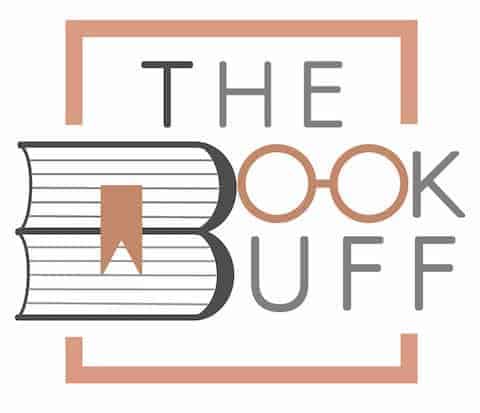Why Does Reading Make You Sleepy? [With TIPS to Avoid it!]
Disclosure: This post may contain affiliate links. – meaning I may get a commission if you decide to purchase through my links, at no additional cost to you.
The notion of getting sleepy after reading a few pages is a fact that many of us can correlate with. However, not everyone feels sleepy while reading. But, for those who do, there are usually various reasons why individuals might feel sleepy while reading.
Reading can make you sleepy as the constant movement of your eyes can tire the eye muscles. This can lead to your eyes closing prompting sleep to take over. Reading in bed or in a comfortable, warm environment can also lead to sleep.
Another factor that may turn reading into sleep is when you’ve had a physically stressful day. The truth is, there is no one factor that fits all.
In this article, we shall take a look at some of the most common causes of falling asleep when reading. Plus, I will share with you some tips that will help you avoid sleeping when reading!
Why do I Feel Sleepy When I Read?

Whether you are reading a book for casual entertainment or a thesis for your exams, falling asleep when reading is not something we usually prefer; unless it is a sleepy-rainy day!
Here are some of the most common reasons why you may be feeling sleepy when you read.
1. You’ve Had a Long Day
It is not uncommon to read a book at the end of a day before bedtime. But, if you’ve had too much to deal with during the day, reading a book at the end of the day and staying awake might feel like a tough task!
This effect gets magnified when you read a book lying down comfortably tucked into your bed.
If you have had a long day that has been physically stressful, chances are you would sleep off even before you start reading!
When your body feels stressed or tired, the most natural way for it to recover is usually through sleep.
If you are faced with such a situation, perhaps it is best to take the night off and sleep rather than fight the fatigue. Besides, even if you continue reading, chances are you will end up missing out on a few key points of the story.
Moreover, I’ve noticed that when faced with such a scenario, I often end up re-reading the sections of the book the next morning.
2. Tired Eye Muscles
Another factor that may lead to sleeping when reading is when you’ve been reading too much!
Reading requires constant eye movement. This eye movement can strain your eye muscles and tire it out much like physical exercise does to our body.
Furthermore, environmental factors also play an important role when reading. For instance, if there is not enough light when reading, it can be hard on the eyes, needing them to put in extra effort to identify the letters.
Likewise, your eyes will need to also do more work when the letters that you are reading are just too small. This effect can be compounded quite easily especially if both the factors mentioned above – small letters and low lighting conditions occur simultaneously!
Moreover, one of the biggest factors for tired eye muscles is prolonged reading in combination with one of the aforementioned reasons.
As a result, once your eye muscles get tired, it can eventually lead to your eyes closing off and sleep taking over!
3. Topic is Not Interesting
Another factor that is often understood but overlooked is the fact that you may perhaps not really enjoy the topic that you are reading!
This is a common occurrence amongst students. I’m sure you can relate to the time when you would fall off to sleep while reading a book on a subject that you didn’t like; perhaps from your school!
When you read, your brain needs to focus and pay attention to what is being read. This can quickly lead to mental fatigue if the topic is not interesting!
The same holds true when you are reading a book that has a really complex web of stories or if the book is a heavy read due to the language used in the book! In each of these situations, your brain needs to do extra work which can sometimes lead to feeling sleepy.
So, the next time you feel sleepy, perhaps take a quick check whether you are enjoying what you are reading. If not, perhaps you may want to go with a book that you may find interesting!
4. Sleep Disorder
Another factor, although rare, that may be responsible for sleeping while reading may be a sleep disorder.
Most often, people associate a sleep disorder with a lack of sleep. But, certain sleep disorders like narcolepsy can also cause you to feel drowsiness or fall off to sleep at unusual times during the day.
In such a situation, falling off to sleep while reading may not be a contributing factor but just a coincidental situation.
If you feel like you tend to fall off to sleep at the most unusual of times, then perhaps it is time to make a visit to a doctor.
Tips on How to Stop Feeling Sleepy When Reading?
Now that you have understood why you may be feeling sleepy when you read, let us now take a look at some of the things that you can do in order to avoid feeling sleepy when reading!
1. Correct Posture

One of the best ways to prevent feeling sleepy when reading is to read in a correct posture.
It is important to provide sufficient support to all the muscles throughout the various parts of your body when reading. You may think that only the eye muscles may need some rest, but by believing that you will only be partly correct.
The most effective and ergonomic way to read is when you are sitting on a chair with a desk. Make sure you keep your back upright, but also provide sufficient support to the back muscles; especially around the lower back.
Try to make sure that your feet are firmly on the ground. Ensure that your thigh is parallel to the ground and your legs are not hanging from the chair as this will affect the blood flow to your leg muscles.
Lack of blood flow to your leg muscles will incur pain and, ultimately, you will want to move onto a bed for added comfort. This will signal your body that it’s time to sleep, and slowly, you may start feeling sleepy!
You also want to make sure that the book is at an appropriate distance from your eyes as this will reduce fatigue in your eye muscles. Keeping the book at an arm’s length is generally a good rule of thumb.
Ideally, you should avoid reading on the bed. But, if that’s something you can’t resist, then there are a few things you can do.
For a complete guide, check out my other article on the best position to read a book that provides additional tips along with the best position to read a book for the most comfort.
2. Good Lighting
Having a good reading environment can play a key role in avoiding sleep when reading!
A study conducted in 2017 showcased that light indirectly affects our sleep and wake-up behavior. Light acts as a cue to certain proteins present within our body. This means low light can act as an indication of time to sleep in our brains and trigger sleepiness.

Thus, it is important to make sure that you have sufficient light when reading!
In my experience, I’ve seen that the most ideal time to read is in the morning to just before noon. Not only is your brain fresh of any thoughts and stresses of life, but you also get access to sufficient daylight!
When reading during the daytime, the light shouldn’t be much of a problem as long as you make sure that you don’t draw the curtains to prevent light from coming into the room. Ideally, sit next to a window during the daytime for best results.
However, during the nighttime, make sure that the room is well lit. Choose a position in the room such that the source of light in the room is not obstructed by any object or any part of your body (such as your head especially when the light source is behind you).
Make sure that the light from the light source falls directly on the book. You may want to sit opposite the light source. If you like to raise the book to eye level while reading, then you may want to sit perpendicular to the light source.
I recommend buying a table lamp for nighttime reading. I’d highly advise you to go with an adjustable lamp like this one from LePower (on Amazon).
Using an adjustable lamp allows you to move the light source depending upon your sitting position. This ensures that there is always sufficient light for reading!
Plus, a lamp like the one recommended above allows you to use it at a desk or even when you are reading in your bed.
3. Drink Enough Water
The next tip is to make sure that you drink enough water. And, don’t just drink water while reading. Make sure that you drink water throughout the day and remain hydrated.
Not drinking enough water can easily lead to fatigue and induce sleepiness. In fact, research suggests that a lack of sufficient amounts of water in our body can directly impact our ability to stay alert!
The amount of water that you need to drink can vary from person to person. However, a good rule of thumb is to drink about 0.75 to 1 gallon of water every day. If you are an athlete or physically active, you may need to drink more.
One thing to remember is that you may be tempted to replace water with caffeinated beverages or energy drinks. Don’t do that!
Using coffee, tea or other beverages may help you stay awake a little longer, but in the long run, such items (especially energy drinks) can have a great negative impact on your health!
In fact, some of these beverages may perhaps make you dehydrated rather than keeping you hydrated. Thus, it is best to stick with water if you want to avoid feeling sleepy when reading!
4. Take a Break While Reading
Another way to prevent yourself from feeling sleepy is to take a break when reading; especially when you are planning to read for long hours!
When you sit in one position staring at a book at a fixed distance from your eyes, the muscles around your eyes and body in general start to feel stiff.
This can eventually lead to fatigue and tiredness, and make you feel sleepy.
Thus, taking a break after about an hour of reading is generally good practice and it can help prevent feeling sleepy.
It is best to stand up and walk around for a few minutes. This will help release the stress on your muscles. If possible, do a bit of stretching as this can help improve the blood flow.
For your eyes, make sure that you look at objects that are at least 15 to 20 feet away for a few minutes. This can help relax your eye muscles and readjust the focus.
Perhaps, walk over to the kitchen and drink some water!
5. Water Splashes – Rinse Your Face
Sometimes, even after you’ve followed the tips that are mentioned above, you may still feel sleepy. This next tip will surely help you fix that problem.
If you still feel sleepy, one of the best ways to keep yourself awake is by splashing your face with some water. Use water splashes particularly for your eyes.
If possible, use some cold water. This will help relax your eyes. Using rose water spray like the Mario Badescu facial spray (on Amazon) for your face is another great way to not just feel refreshed, but also to hydrate your facial skin!
Water splashes can definitely be a great way to wake you up when you feel sleepy!
6. Get Enough Rest

If you consistently feel sleepy when you are reading, then perhaps it is possible that you are not getting enough sleep.
Getting enough rest might sound counterintuitive when we are talking about avoiding sleep when reading. However, there is enough research to indicate a direct relationship between adequate sleep and cognitive functions.
Research suggests that when your body is well-rested, it is more alert and focused, and is generally able to grasp more information with higher recollection.
Thus, sleep plays an important role in your memory, mood, and attentiveness. So, make sure that you get quality sleep every day and that your body is well-rested.
If your sleep at night is not enough, make room for some scheduled naps during the daytime!
Most importantly, keep your digital devices away from you for a good hour before you go to bed. This will help you fall off to sleep faster and result in a night of higher quality sleep.
If possible, try some meditation techniques to help relax and induce sleep.
7. Avoid Reading in Bed
We’ve already learned that the best position to read is on a desk. This tip is an extension of that understanding.
When you are reading in bed, your brain just receives signals that perhaps it is time for you to sleep. As a result, you end up feeling sleepy.
However, if you really have to read in bed and for some unknown reason you just can not avoid it, then there are a few things you can do.
Make sure that you sit with your back upright and provide adequate support to your back using one or two pillows as needed. Extend your legs straight properly on the bed rather than leaving them hanging from the side of the bed.
Make sure that you don’t end up slouching as this can not only hurt your back but will also slowly make you enter sleep mode!
Lastly, don’t read when lying flat on your back. This will in fact speed up the process of sleeping. Moreover, it will also adversely affect your eyes!
8. Avoid Reading in Moving Vehicle

You may not realize it but you may perhaps feel sleepy also when you are reading in a moving vehicle!
When reading in a moving vehicle or even a train, it is difficult to hold the book steady in one place due to inertia. This movement requires our eyes to put extra effort into focusing on the words.
As a result, not only does it put a strain on your eye muscles and potentially affect your eyesight, it also makes you feel sleepy!
So, if you are reading in a moving vehicle – a bus, car, or even a train, don’t do that! Instead, I’d recommend listening to an audiobook on a journey.
Can Reading Help Me Fall Asleep?
As you may have understood by now, reading itself doesn’t really do anything to the sleep. But, the associated factors that act when reading a book can make you feel sleepy.
Reading can help you fall asleep especially if you make it part of a regular night routine. Furthermore, reading a book that is slow, dull, or simply boring can help you fall off to sleep faster!
Typically, people try to avoid falling off to sleep when reading. However, if you’re trying to leverage reading as an act to fall of to sleep, then you are in luck!

About the Author
Akansha is a former business journalist and a seasoned communications professional. She is the founder of TheBookBuff, an avid storyteller, and a lifelong biblophile! Check out her profile page to know more about Akansha.


![How to Buy Books From Amazon? [The ULTIMATE Guide!]](https://thebookbuff.com/wp-content/uploads/2022/12/pinho-r_2MXjhQiQY-unsplash-300x200.jpeg)
![Is Reading a Hobby? [Or an Interest, Pastime or Passion!]](https://thebookbuff.com/wp-content/uploads/2021/10/woman-smiling-and-reading-a-book-while-sitting-on-the-bed-300x200.webp)
![How to Transfer Books from Kindle to Computer? [And Back!]](https://thebookbuff.com/wp-content/uploads/2021/11/pexels-adrienne-andersen-2237795-300x200.webp)
![Kindle vs. iPad: Which is Better for Reading in 2023? [Guide!]](https://thebookbuff.com/wp-content/uploads/2022/08/reading-on-iPad-300x223.webp)
![How to Create and Access Kindle Account? [Complete Guide!]](https://thebookbuff.com/wp-content/uploads/2021/11/kwame-anim-PJ3rjIfD__k-unsplash-optimized-300x200.webp)